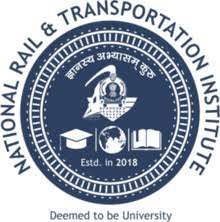Uncover the promising future prospects of a B.Tech in Infrastructure Engineering. Learn about the industry's growth, technological advancements, and the career benefits it offers in the realm of infrastructure development and management.
Exploring the Future Scope and Benefits of B.Tech Rail Infrastructure
Infrastructure engineering is a critical field that focuses on designing, building, and maintaining the fundamental systems that support modern society, such as roads, bridges, water supply, and transportation networks. A Bachelor of Technology (B.Tech) degree in Infrastructure Engineering equips students with the skills and knowledge required to contribute to the development and sustainability of vital infrastructure. In this article, we will explore the future scope and benefits of pursuing a B.Tech in Infrastructure Engineering.
Future Scope of B.Tech in Infrastructure Engineering
-
Growing Demand: The need for infrastructure development is ever-increasing as the global population expands, and urbanization continues. Countries worldwide are investing heavily in infrastructure to support economic growth. This creates a high demand for infrastructure engineers who can plan, design, and execute these projects.
-
Smart Infrastructure: The future of infrastructure is "smart." This involves incorporating technology and data-driven solutions into traditional infrastructure systems. Infrastructure engineers will play a crucial role in designing and implementing these innovative solutions, such as smart grids, intelligent transportation systems, and sustainable building materials.
-
Sustainability: Sustainable infrastructure is a key focus for governments and organizations globally. Infrastructure engineers will be at the forefront of developing eco-friendly solutions that reduce environmental impact. This includes designing energy-efficient buildings, optimizing transportation networks, and implementing renewable energy sources.
-
Resilience: Climate change and natural disasters are increasing the need for resilient infrastructure. Engineers will need to design infrastructure that can withstand extreme weather events and other unforeseen challenges. This will lead to a specialization in disaster-resistant infrastructure planning.
-
Infrastructure Rehabilitation: Aging infrastructure in many countries requires extensive rehabilitation and maintenance. This provides opportunities for infrastructure engineers to work on revitalizing existing systems, extending the lifespan of critical infrastructure, and ensuring public safety.
-
Global Opportunities: Infrastructure engineers are in demand not only in their home countries but also internationally. Many developing nations seek expertise from experienced engineers to aid in their infrastructure development projects. This opens up a world of opportunities for professionals with a B.Tech in Infrastructure Engineering.
Benefits of Pursuing a B.Tech in Infrastructure Engineering
-
High Demand and Lucrative Salaries: With the growing need for infrastructure development, graduates with a B.Tech in Infrastructure Engineering are in high demand. This translates into competitive salaries and excellent job prospects. Additionally, infrastructure engineers often receive bonuses and benefits due to the critical nature of their work.
-
Diverse Career Opportunities: This degree offers a wide range of career options. Graduates can work in government agencies, construction companies, consulting firms, research institutions, and more. The versatility of the degree allows engineers to specialize in areas like transportation, water resources, or structural engineering.
-
Impactful Work: Infrastructure engineers contribute to projects that have a direct and lasting impact on society. Building safe and efficient infrastructure systems improves the quality of life for communities, reduces environmental harm, and fosters economic development.
-
Innovation and Problem-Solving: The field of infrastructure engineering is constantly evolving. Graduates have the opportunity to work on cutting-edge projects that require innovative solutions to complex problems. This fosters creativity and continuous learning.
-
Global Citizenship: Infrastructure engineers often work on international projects, allowing them to gain a broader perspective and develop a sense of global citizenship. They can contribute to sustainable development in various parts of the world.
-
Networking and Collaboration: The nature of infrastructure projects often requires collaboration with multidisciplinary teams, including architects, urban planners, environmental scientists, and policymakers. This provides an excellent opportunity to network and build professional relationships across various sectors.
-
Job Security: As long as there is a need for infrastructure, there will be a demand for infrastructure engineers. This field offers job security, making it a reliable career choice.
-
Continuous Learning: Infrastructure engineering is a field that requires engineers to stay updated with the latest technologies and best practices. This means ongoing opportunities for professional development and learning.
 4 Years
4 Years
 Under Graduate
Under Graduate
 Engineering
Engineering
 Full Time
Full Time





 back
back

